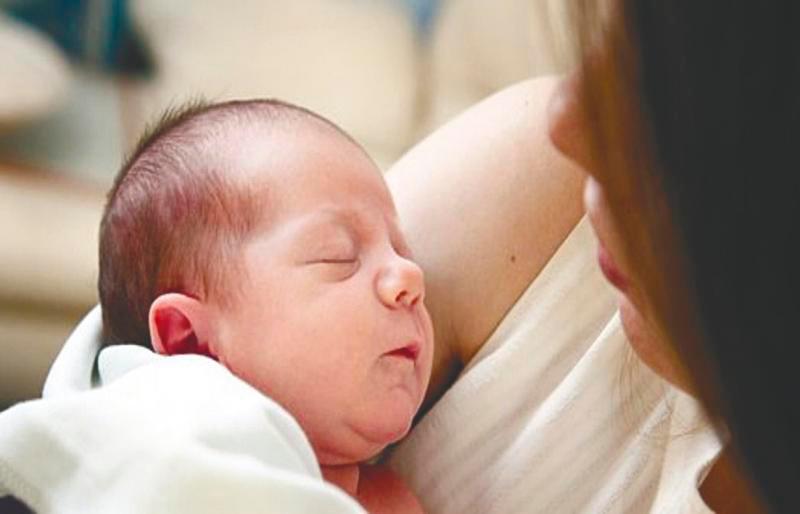I COMMEND the Health Ministry for its recent decision to include the three-in-one Tetanus-diphtheria-pertussis (Tdap) vaccine into the public vaccination programme for expectant mothers. This move is essential, given the increasing incidence of pertussis cases in Malaysia, especially in Rompin and Alor Gajah.
As a strong advocate for maternal immunisation, I find it reassuring that the ministry is taking such a proactive step. This initiative will help reduce the risk of vaccine-preventable diseases in newborns and promote the overall health of children across Malaysia.
While there has been significant worldwide progress in reducing childhood mortality since 1990 as part of the United Nations Sustainable Development Goals, which aim to eradicate preventable deaths among newborns and children under five by 2030, there has been a noticeable deceleration in the improvements in survival rates since 2010, especially in neonatal mortality, which pertains to the death of a newborn within the first 28 days of life.
Each day, around 6,400 newborns lose their lives, and nearly 47% of child fatalities occur among those under the age of five. In Malaysia, the neonatal mortality rate in 2021 was at 4.1 per 1,000 live births, marking an increase from the 3.9 rate observed in 2020.
We need to improve the newborn survival rate, especially given that vaccine-preventable infections have been identified as significant contributors to neonatal mortality.
Nevertheless, various challenges arise when it comes to safeguarding infants younger than three months of age, who are too young to receive vaccinations, especially diseases such as pertussis.
Prioritising maternal immunisation
To address this issue, maternal immunisation seems to be one of the most effective solutions as this approach is already widely practised in many developed countries, and is a proven method to prevent illnesses and save lives.
When a mother receives vaccinations during pregnancy, she achieves dual advantages: boosting her immunity and providing protection for her unborn child.
The antibodies in the mother’s body are transferred to the baby through the placenta, protecting the baby during birth and shielding the child for several months until the baby receives his vaccinations.
This intervention can benefit the mother and her child. This initiative represents a significant milestone in public health by providing mothers with protection at a time when they need it most.
In Malaysia, maternal Tetanus Toxoid (TT) vaccination is already part of the public programme for expectant mothers. However, we must remain vigilant and continue to enhance our strategies to address any emerging cases of vaccine-preventable diseases.
Pertussis, a rising concern
The World Health Organisation’s (WHO) Expanded Programme on Immunisation initially succeeded in reducing pertussis cases worldwide, but the disease is making a resurgence due to factors, such as declining immunity and instances of vaccine refusal or delay.
There is a concerning prevalence of neonatal pertussis cases within Southeast Asia, especially among infants under three months, leading to mortality rates ranging from 5.6% to 14.7% in the region, and this vulnerable age group faces a higher risk of severe illnesses and requiring hospitalisation.
In Malaysia, there has been a consistent rise in pertussis cases over the past two decades, with vaccine refusal rates escalating from 600 in 2013 to 1,600 in 2016. Authorities suspect higher actual incidence due to undetected or unreported cases.
Pertussis presents differently in adolescents and adults compared with infants, and is often underdiagnosed. While they may be carriers of the infection, they can unknowingly transmit it to infants, leading to severe consequences.
As of Aug 19, there has been a total of 329 cases of pertussis nationwide this year, resulting in 23 deaths. And 189 of these cases or 57.4%, involve infants under 12 months of age.
A recent year-long study conducted across multiple hospitals revealed that a significant 89.3% of confirmed pertussis cases were observed in infants, who were either too young to be fully vaccinated or were under-vaccinated for their age.
These figures indicate that childhood diseases, such as pertussis, are difficult to eliminate. It is crucial to also recognise the emotional stress and financial strain that parents and families endure when their infants become seriously ill.
Timely infant vaccination to avert vaccine-preventable infectious diseases cannot be stressed enough, and maternal immunisation is an important measure to curb infections, such as pertussis.
Safeguarding our infants
Numerous studies have found that immunity from maternal immunisation has the most significant effect in preventing pertussis among newborns.
Despite the benefits and WHO’s recommendation to consider the Tdap vaccination for pregnant women, many countries in Southeast Asia continue to recommend the TT vaccine for pregnant women or women of childbearing age.
Our neighbouring country Singapore has already incorporated the Tdap vaccination into its healthcare programme for expectant mothers, and it would be prudent for us to take a similar approach.
In Malaysia, a significant number of women are not receiving maternal vaccinations due to various factors, including limited awareness, vaccine hesitancy, safety apprehensions and financial constraints.
Currently, the utilisation of the Tdap vaccine in Malaysia is mainly in the private healthcare and relies on individual doctors’ recommendations.
I am a strong advocate of vaccinations and as of 2021, we have introduced the Tdap vaccine for expectant mothers at Hospital Al-Sultan Abdullah UiTM Puncak Alam, replacing the TT vaccine.
We are the first public hospital to provide the Tdap vaccine, along with comprehensive counselling, leading to more mothers being vaccinated despite the cost of the vaccine.
The confidence healthcare providers have in vaccines, their capacity to address misinformation and the availability of vaccines on-site play pivotal roles in improving vaccination rates among pregnant women in Malaysia.
Therefore, I urge my peers to engage in discussions with their patients and recommend maternal immunisation to increase awareness of this life-saving measure.
I appeal to the ministry to continue its efforts in strengthening the maternal immunisation initiative.
Through collaboration, we can prioritise newborn health and bridge the gap in protection during a baby’s early months of life and after, thus bringing Malaysia closer to attaining the SDG targets by 2030.
By uniting our efforts, we can collectively forge a healthier future for the children of our nation.
The writer is a consultant of Fetomaternal Medicine, Department of Obstetrics and Gynaecology at Hospital Al-Sultan Abdullah UiTM Puncak Alam. Comments: letters@theusndaily.com










